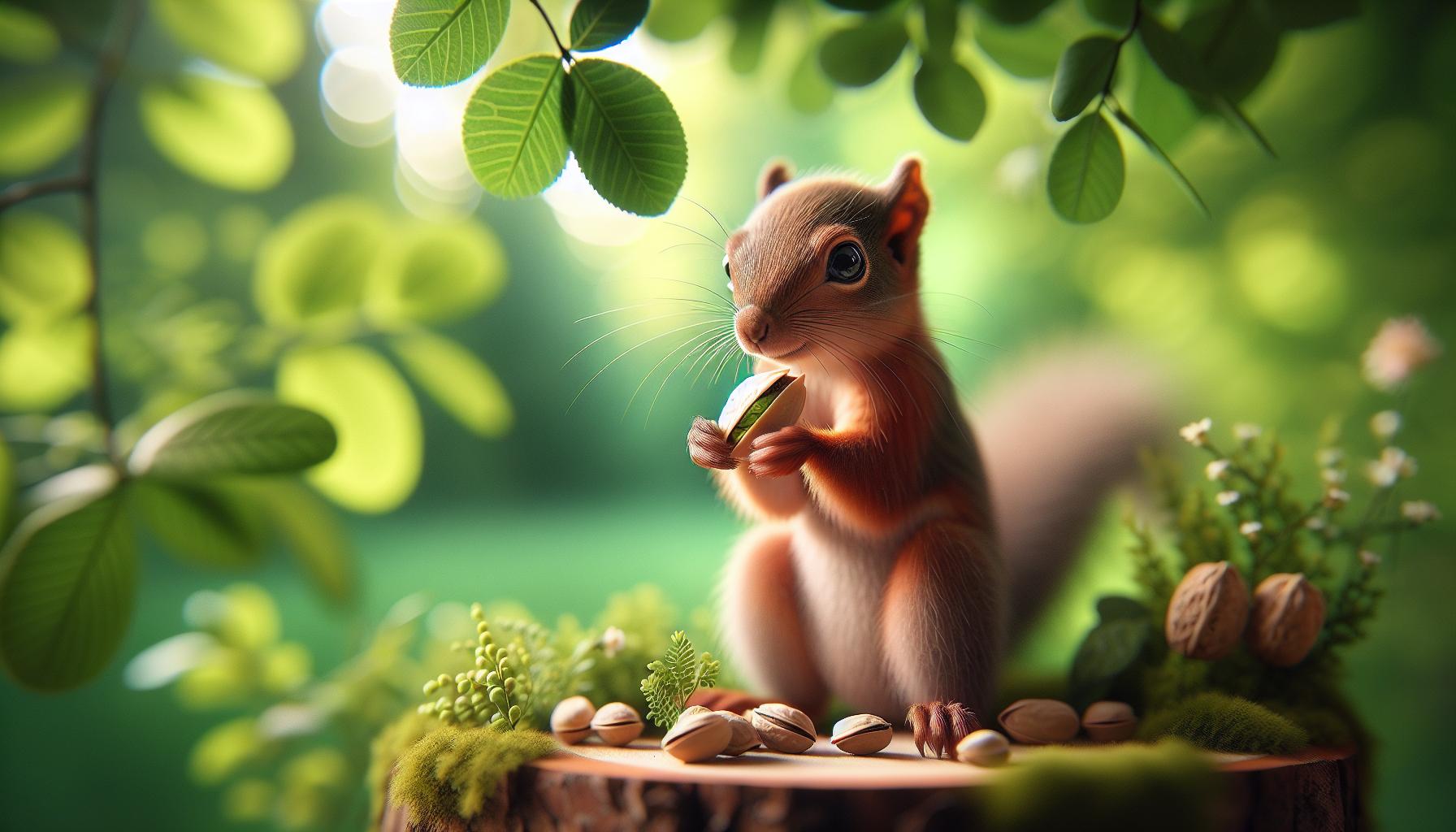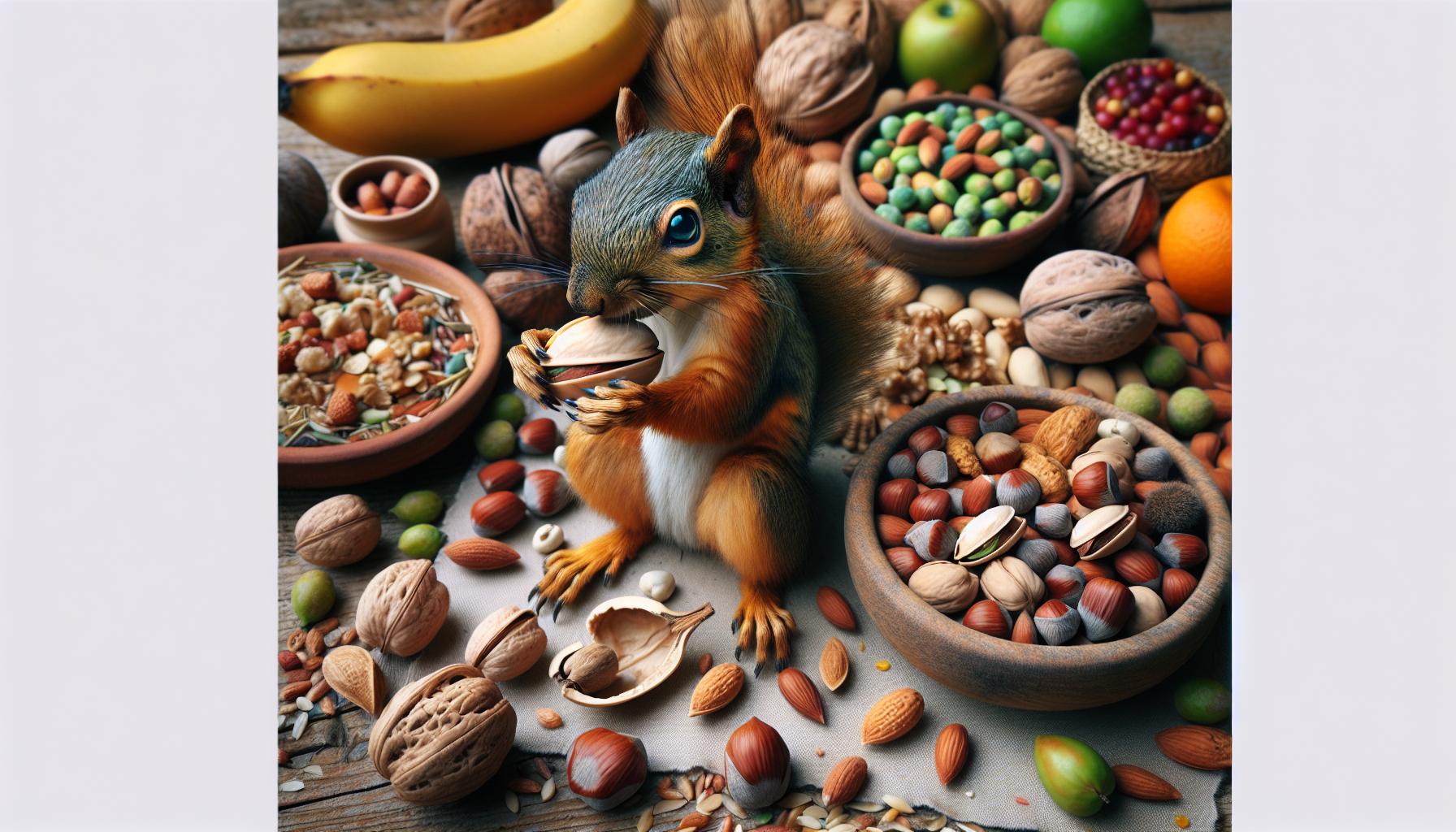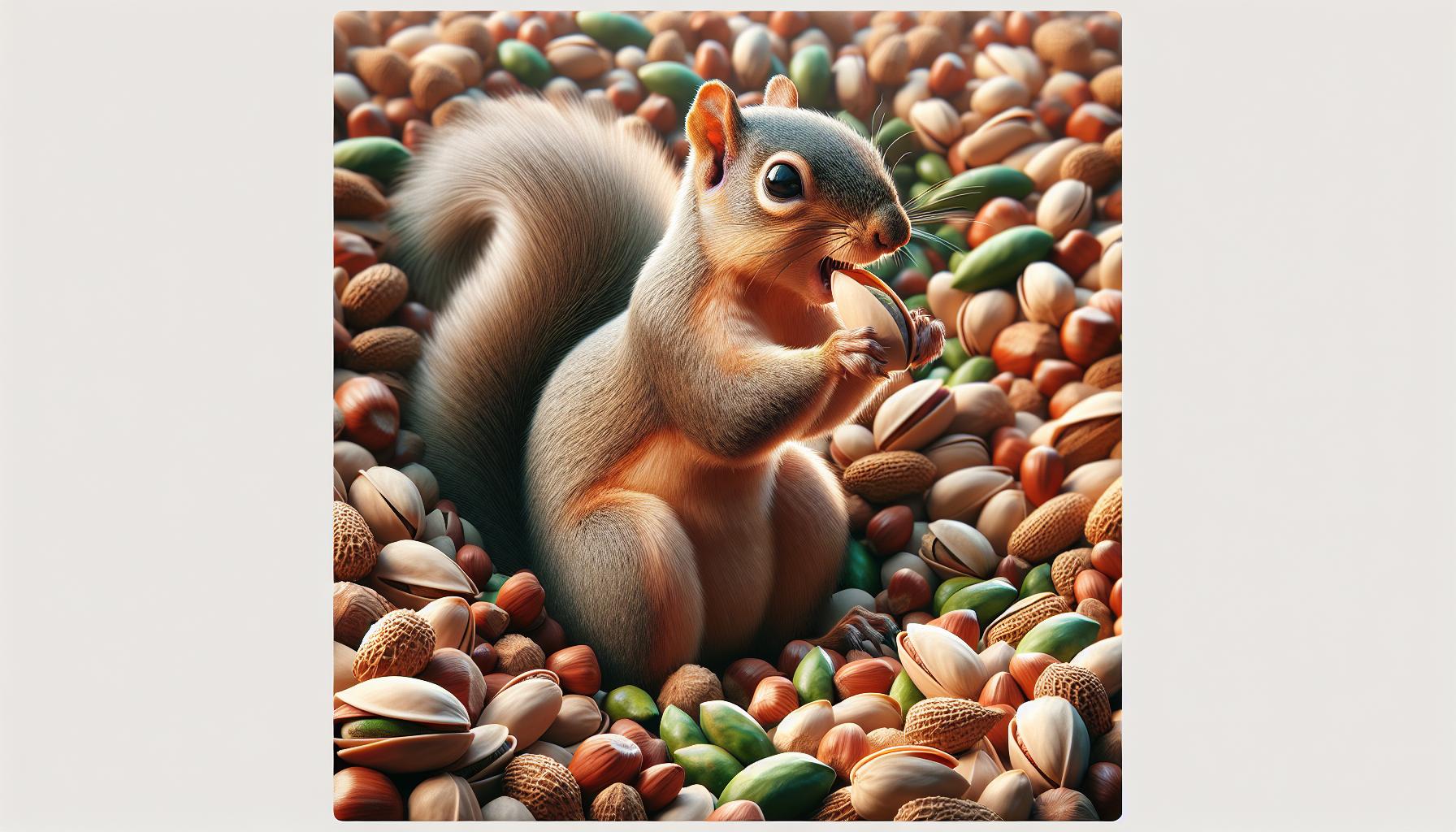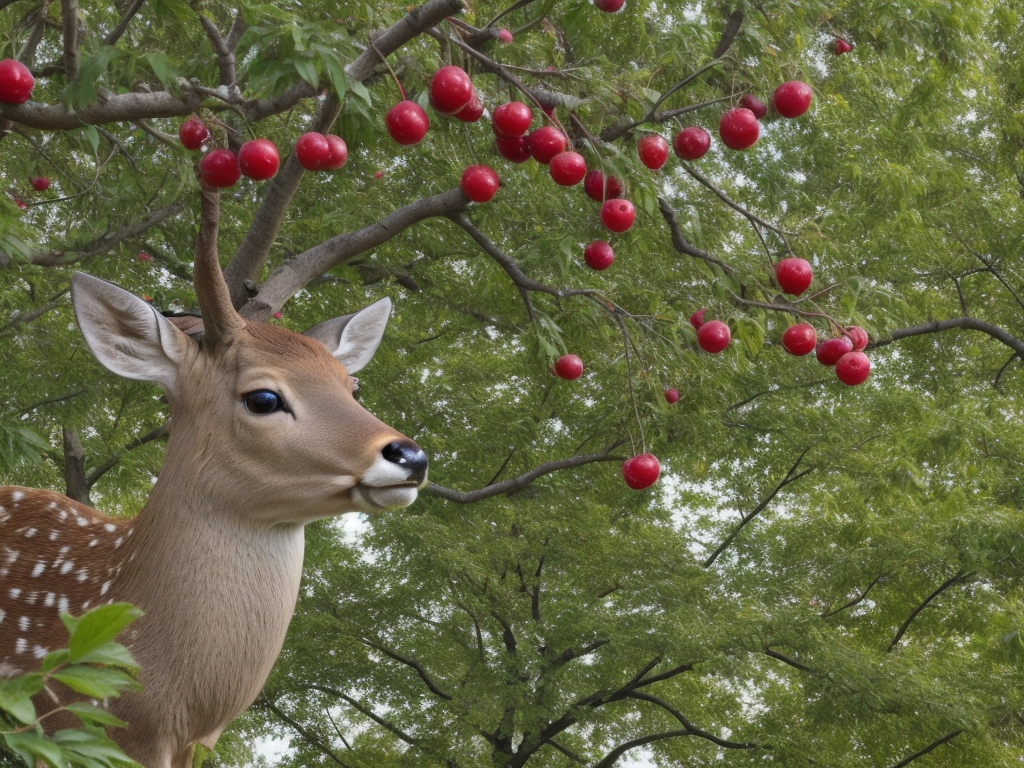Can Squirrels Eat Pistachios? Safe Squirrel Snacking Tips
Ever watched a squirrel and wondered if those little critters can munch on pistachios just like you do? Well, you’re not alone. Squirrels are known for their diverse palate, but when it comes to pistachios, there are a few things you should know.
Pistachios, those salty, tasty treats, might seem like a perfect snack for your bushy-tailed friends. Before you start sharing your stash, it’s important to understand the do’s and don’ts of feeding squirrels. Let’s crack open the truth about squirrels and pistachios.
Can Squirrels Eat Pistachios?
Have you ever watched a squirrel and wondered if those little nut-loving critters can snack on pistachios? Well, it turns out, they can. Squirrels are quite the connoisseurs when it comes to nuts. Pistachios, though, come with a few strings attached. Unlike their favorite acorns or sunflower seeds, pistachios are typically sold to us humans salted and roasted, which aren’t the best options for squirrels.
High sodium content is one of the main concerns with feeding pistachios to your backyard buddies. Just like in humans, too much salt isn’t good for squirrels. It can lead to dehydration, among other health risks. So if you’re considering sharing your snack, opt for unsalted pistachios.
But what about the shells? Squirrels are natural-born chewers; it’s how they keep their teeth from growing too long. So cracking open a pistachio shell could actually be a fun little challenge for them. However, if you’ve got shelled nuts on hand, that saves their little teeth the extra work.
Here’s another thing to think about. Pistachios, as part of a mixed diet, can provide some nutritional benefits for squirrels. They contain healthy fats, fiber, and a decent amount of protein. But moderation is key! Nuts are high in fat and can lead to obesity in squirrels if they’re overindulged.
When it comes down to it, offering a few pistachios now and then likely won’t harm your squirrel friends, especially if they’re part of a varied diet. Just make sure they’re unsalted and you’re not overfeeding. After all, they need a balanced diet just like we do.
- Opt for unsalted pistachios
- Offer nuts in moderation
- Ensure a balanced diet for squirrels
The Diverse Palate of Squirrels

Squirrels are far from picky eaters. In fact, you’ll find that their diet is quite varied, reflecting their adaptable nature. Omnivores by design, these little creatures will munch on a broad range of foods available in their natural surroundings. From fruits and veggies to nuts and seeds, they are not shy about snacking on whatever they can scavenge.
Pistachios, while not a staple in their diet, are a delightful treat for squirrels. However, you should know that not all pistachios are created equal when it comes to squirrel nutrition. Offer these nuts in their unsalted form to keep your bushy-tailed buddies safe.
Wild squirrels often consume:
- Acorns
- Berries
- Tree bark
- Flower buds
- Insects
In urban environments, squirrels also adapt to eat:
- Leftovers from garbage bins
- Bird seeds from feeders
- Handouts from humans
The inclusion of pistachios in a squirrel’s diet can serve as a beneficial supplement, provided they are given responsibly. Consider the source of the pistachios you’re offering. Shelled nuts can save squirrels some work, but they do enjoy the mental stimulation of cracking open their own food.
When it’s about feeding squirrels, focus on maintaining that element of their instinctual behavior – foraging is as important for their physical health as it is for their mental well-being. Diversity in their diet is good, but remember moderation is the golden rule. Too many nuts, especially rich ones like pistachios, could lead to weight issues.
Keep these considerations in mind as you engage with the wildlife around you. Offer squirrels a variety of foods, respecting their natural dietary patterns, and enjoy watching them thrive.
Understanding the Do’s and Don’ts of Feeding Squirrels

When you’re eager to treat your friendly neighborhood squirrels, it’s essential to recognize that not all foods are safe for them. While squirrels aren’t particularly fussy eaters, some items can harm their health. Here’s how you can strike the perfect balance when feeding these adorable rodents.
Offer Nuts in Moderation
Nuts are a staple in a squirrel’s diet, but like humans, squirrels can overindulge. To prevent obesity and nutritional imbalances, offer a mix of:
- Unsalted pistachios
- Almonds
- Walnuts
- Hazelnuts
Serving them unshelled will also keep squirrels entertained and active as they work to access the nutritious core.
Provide a Variety of Foods
Incorporating diversity into a squirrel’s diet ensures they get a range of nutrients. Consider adding these to their usual nuts and seeds:
- Fruits (apples, bananas, berries)
- Veggies (carrots, greens, squash)
- Grains (cooked pasta, oats)
Squirrels will appreciate the change and it’s a joy to watch them navigate through different textures and tastes.
Identify Potentially Harmful Foods
Certain foods can be hazardous to squirrels, and avoiding these is critical for their wellbeing. Never offer:
- Chocolate
- Candy
- Caffeinated beverages
These foods can be toxic and even fatal to squirrels. Always steer clear of them.
Be Mindful of Human Foods
It’s tempting to share your snack with a cute critter, but remember that human foods often contain high levels of salt and sugar which are detrimental to squirrels. Keep it simple and stick to what’s natural in their diet.
Monitor Their Behavior
After feeding squirrels, take the time to observe their behavior. This not only ensures they’re safe and enjoying their treats but also offers insight into their health and dietary preferences. By tuning into their habits, you’ll learn what works best for these creatures and can adjust your offerings as necessary.
Let’s keep our furry neighbors nourished, happy, and thriving with mindful feeding practices that support their natural lifestyle.
The Truth About Squirrels and Pistachios

You might wonder whether pistachios are a good nut choice for your neighborhood squirrels. As it turns out, squirrels can indeed eat pistachios, but there are some important details you should know before tossing a handful their way.
Pistachios can be part of a squirrel’s diet, but moderation is key – these nuts are rich in fat and can lead to obesity if fed excessively. While high energy content is beneficial, especially in colder seasons, you don’t want to upset the natural balance of a squirrel’s diet. Stick to giving them pistachios as an occasional treat rather than a staple.
There’s also the subject of salted pistachios. Remember that the salt and other seasonings found on most packaged pistachios aren’t good for squirrels. Consuming too much salt can lead to dehydration and other health issues in these small creatures. So, when giving pistachios, go for the unsalted and unflavored varieties.
Lastly, consider the pistachio shells. These can pose a choking hazard or cause dental problems for squirrels, so it’s best to offer them shelled nuts. Ensuring the pistachios are fresh and free from mold is crucial; spoiled nuts can make squirrels sick.
When adding pistachios to the mix, watch how the squirrels react to these new treats. They’re clever animals and quickly learn where to find their favorite snacks, so you’ll soon discover if pistachios are a hit.
- Offer unsalted, shelled pistachios
- Feed them as an occasional treat
- Avoid excessive amounts to prevent obesity
- Ensure the nuts are fresh and mold-free
By following these guidelines, you’ll provide a tasty and safe option for your furry friends. Always aim for a balanced approach to feeding squirrels, integrating a variety of nuts, seeds, fruits, and veggies into their diet. Keep in mind that observing how the squirrels interact with different foods can give you insights into their preferences.
Conclusion
Now that you’re equipped with the knowledge of how to treat your furry friends, remember to offer pistachios sparingly to maintain their health. Keep it simple with shelled, unsalted, and fresh nuts to avoid any dietary mishaps. By being mindful of the treats you provide, you’ll ensure the squirrels in your backyard continue to thrive. So go ahead, enjoy the delight of feeding these adorable creatures, but always with a watchful eye on their well-being.




